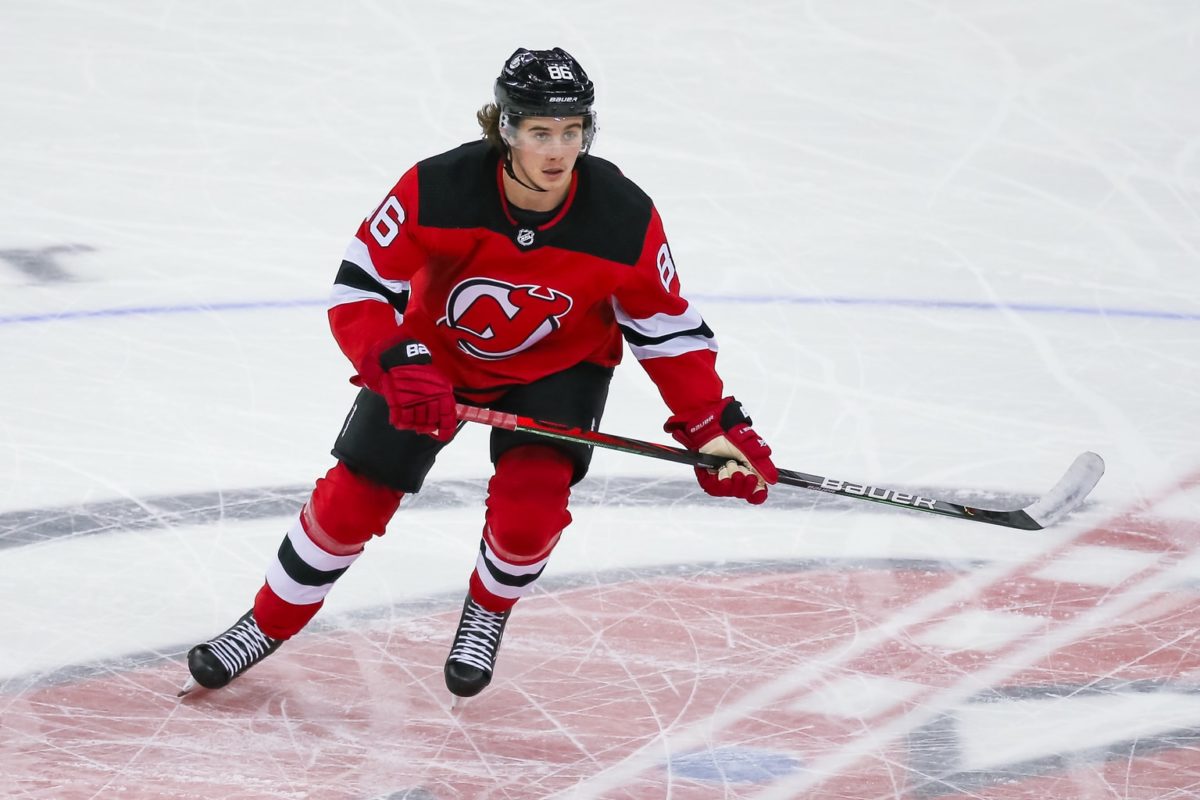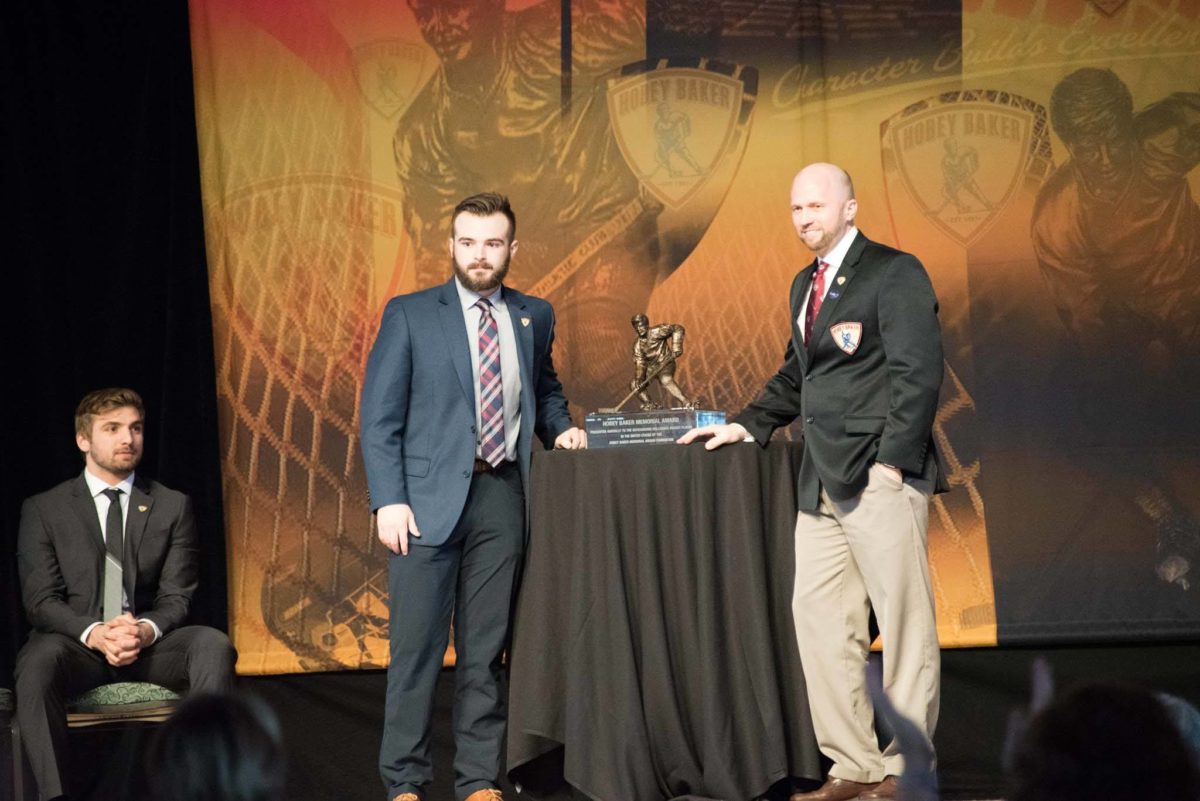Coming off a 6-2-2 record in their last 10 games of the 2019-20 season, the New Jersey Devils had plenty of reasons to be optimistic about what the future had in store for them going forward. The expectation for the organization this year was for their young players to continue developing, and for the team itself to be more competitive in the standings than last year. That being said, as we approach the 2021 trade deadline, New Jersey is not only almost entirely out of the playoff race, but also on pace to finish lower in the standings than in 2020.
The change in divisional structure due to COVID-19 has likely played a role in the team’s disappointing season thus far, however, playing in a difficult division is not the only reason for their struggles. There are a lot of issues with New Jersey’s roster as it is currently constructed, and after witnessing this year’s setback, perhaps we should expect the rebuild to take a little bit longer than we had originally thought.
The Upside of a Struggling Offense
The Devils currently rank 27th in the league with only 91 goals for. That’s two spots above last place, with the two teams below them being the Detroit Red Wings, and the historically bad Buffalo Sabres, who just managed to break an 18-game losing streak a few days ago. To be blunt, New Jersey is in very bad company when it comes to generating offense.
The good news for Devils fans, however, is that the team does have a very young roster with a few high-end prospects, and several middle-six/potentially top-six pieces in Janne Kuokkanen, Jesper Boqvist, Nolan Foote, Dawson Mercer, and Yegor Sherangovich (to name a few). The core going forward, however, is undoubtedly centered around Jack Hughes, Pavel Zacha, Nico Hischier, Ty Smith, and Alexander Holtz. These players are the biggest pieces to the puzzle that the Devils are trying to solve, and it is pivotal that Hughes, the first-overall pick, becomes the player that everyone expects him to be if New Jersey is to contend for a Stanley Cup someday.
Analyzing Hughes’ Development
It’s no secret that Hughes had a poor rookie season in 2019-20. The young center totaled only 21 points in 61 games, and finished as a minus-26 for the year. Many believed that he was simply not ready for hockey at the NHL level just yet, and that an offseason of both strength training, and on-ice training, would do him some serious good. These assessments were pretty much spot-on.

In 2021, throughout 37 games, Hughes has totaled 17 points; a significant improvement over his numbers from his rookie stint. The sophomore currently possesses an impressive 61.6% Corsi for percentage (CF%), and undoubtedly looks stronger and more confident with the puck. The young center’s game has come along nicely, for the most part, however, the last 18 games have been a struggle for him.
Since March 3, Hughes has only posted 4 points in 18 games. He is still visible, but his production has fallen off significantly. His recent struggles shouldn’t be a cause for concern (especially considering New Jersey’s lack of scoring as a whole), but it is a setback that should serve as a reminder that patience is key for young players, and that for a player like Hughes, it may take another two or three years before he truly becomes a dominant and consistent producer at the NHL level.
Uncertainty and a Lack of High-End Defensive Prospects
Even if only half of the team’s forward prospects reach their potential, offensively, New Jersey should be set for the future. There is plenty of young talent there at forward; now they just need to take care of their defensive issues.
As of right now, Ty Smith and Damon Severson (to a lesser degree), are the only certain pieces on defense. Smith has been nothing short of outstanding in his rookie season, but much like Hughes, he’s going to need a lot more help for the team to take that next step.
Issues With the Current Defensive Core
When taking a look at the defense, you probably won’t see all that much to be optimistic about. P.K. Subban is no longer the star player he used to be, yet he is playing on the top pair with Dmitry Kulikov, a steady defensive-defenseman who in all likelihood, will be traded shortly to play on the third-pair for a contending team. Sami Vatanen has had a very poor season, and although Ryan Murray has offered decent production from the left-side, advanced stats show that he’s not exactly a great defender. Both Vatanen and Murray are unrestricted free agents this offseason, and it remains to be seen what the Devils will do with them at the deadline.
Will Butcher may also play a major role in what the blueline could look like for years to come. The former Hobey Baker Award winner showed tons of promise in his rookie season with the Devils, where he totaled 44 points in 81 games. He emerged as a power-play quarterback, and as one of the top candidates for the Calder Trophy that year. He was expected to be a reliable top-four defenseman that the team could count on for many years, but for whatever reason, that hasn’t turned out to be the case.

Since his rookie season, Butcher has regressed in points, plus/minus, and games played. He has been a healthy scratch several times this year and has only played eight out of 37 games all season. The offensive defenseman has seemingly found his way outside of the team’s future plans, which is incredibly disappointing considering his talent and phenomenal rookie performance. If the 26-year-old can find his game again, it may change the outlook of the entire defense, giving the Devils more game-changing talent and depth, while also placing less pressure on prospects like Kevin Bahl, Reilly Walsh, and Shakir Mukhamadullin, whose ceilings and futures are already relatively unknown.
Patience Is Key
Overall, the Devils still have a lot of work to do before they can consistently contend for the playoffs, let alone the Stanley Cup. The potential talent at forward is there, but it is likely going to take at least two to three more years before players like Jack Hughes reflect that on the scoresheet consistently.
Defensively, New Jersey needs to accumulate talent either through the draft (there are plenty of talented defensemen like Owen Power, Brandt Clarke, and Luke Hughes in this year’s draft), or through free agency. Their defensive core is simply not good enough, and the prospects they have on the blueline should not be counted upon to develop into stars at this point in time.
The future is certainly bright for the Devils, but both the organization and the fans need to be patient. There is still a long way to go.